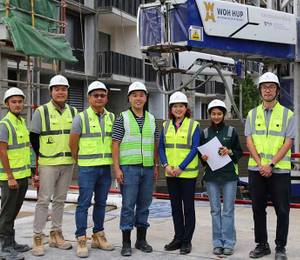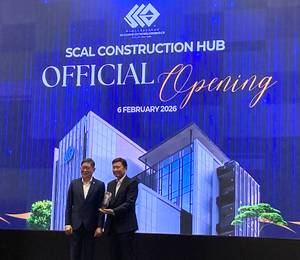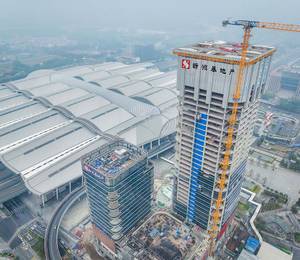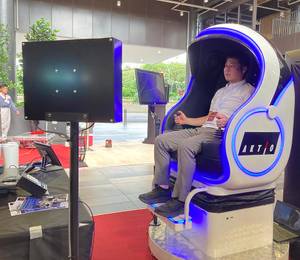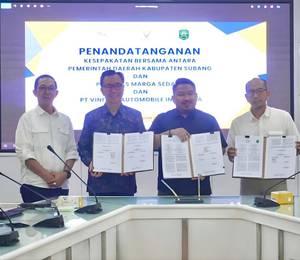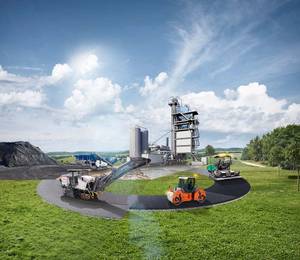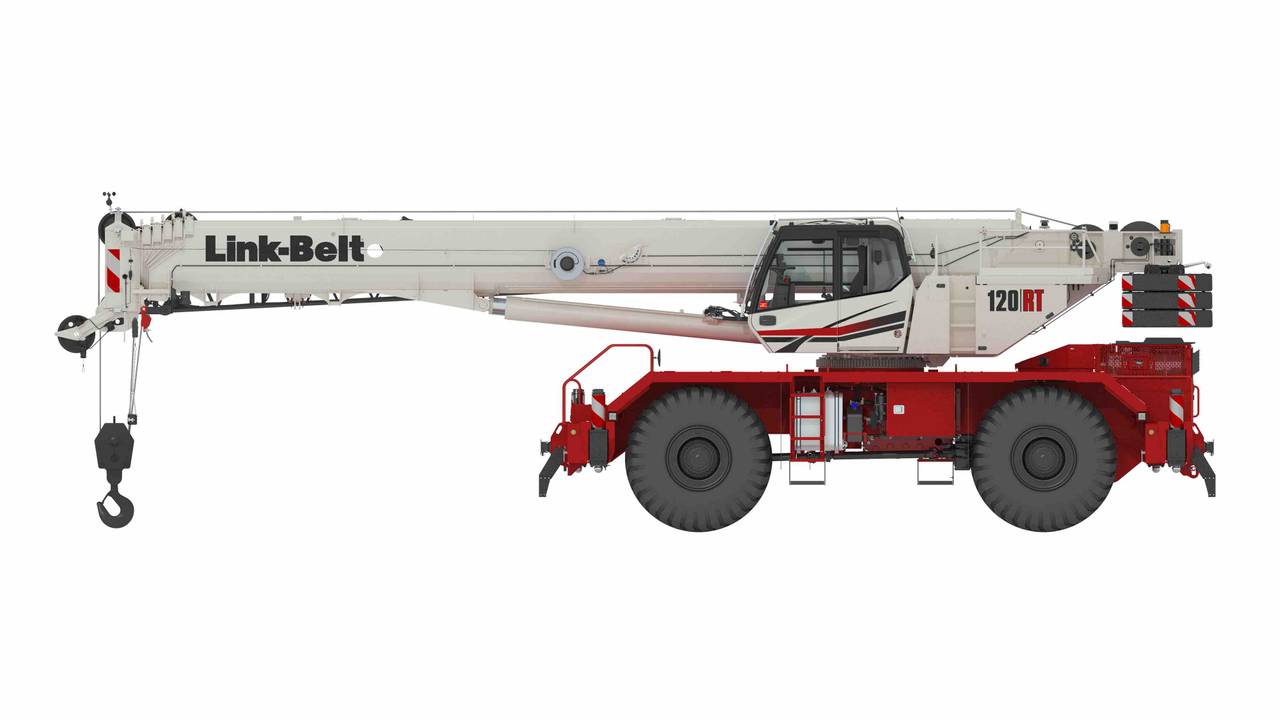Link-Belt Cranes has launched its 110-tonne 120|RT rough terrain crane, equipped with a six-section 11.6 – 50 m pin and latch formed boom.
An available two-piece 10.7 – 17.7 m on-board offsettable fly provides greater flexibility and range, and manually offsets at 0, 15, 30 and 45 degrees. One-person fly erection technology minimises work at height with ground controls for fly assist and boom hoist cylinders. Two 4.9-m lattice insert extensions provide a maximum tip height of 79.8 m.
The 120|RT’s six-speed transmission is powered by a dual compliant 173-kW Cummins Stage V/Tier IV QSB 6.7L, and also available is a 179-kW Cummins Tier III QSB 6.7L diesel engine. Four 29.5x25 tyres mounted on axles affixed to the carrier via greaseless four-link suspension, eliminating 10 previous grease points. Centralised electrical locations, remote mounted filters, and easy-access fluid checks make routine service a breeze.
A 24-V electrical system makes running diagnostics quicker and easier. The wiring is a Controller Area Network (CAN bus) system. The 24-V system yields the ability to multiplex with modules placed near dedicated functions like outrigger beams and winches, revealed Link-Belt. In total, there are five modules located throughout the machine that allow crane functions to continue working in instances where other modules are being diagnosed or serviced.
Six points of access to the carrier deck are maintained with new ergonomic ladders, and regardless of slew angle, the operator has easy egress to the flat deck from the cab. The 120|RT exterior features all new durable textured paint, along with a new slip-resistant paint on the carrier deck to provide better footing for access and egress with flat deck and six points of access.
Link-Belt’s V-CALC (Variable Confined Area Lifting Capacities) system features 81 different outrigger configurations with real time 360-degree charts. According to Link-Belt, the V-CALC has proven itself in general construction and infrastructure applications on the 75|RT. Once outriggers are set, the user-friendly Pulse 2.0 system indicates the crane’s available capacity. The system then previews the operator’s real time capacities given the crane’s current configuration at the next five radiuses for a set boom angle.
Upon selection, Link-Belt Pulse 2.0 provides a live view of the working area with colour-coded quadrants. If the chart exceeds capacity at a given slew angle, swing arrest will initiate five degrees prior – allowing the crane to come to a smooth stop.
High strength steel used in the upper frame accommodates a new winch design with ultra-wide drums for increased line pull at higher working layers. Maximum winch line pull of 105.1 kN provides a wider range of applications and contractor needs. Hydraulic outboard routings and wiring harness improvements offer form-fitted design, providing greater serviceability over the life of the crane. Three slabs of hydraulically removable upper counterweight totalling 13.2 tonne is standard equipment.
Introduced on the 75|RT in 2017, Link-Belt’s new cab design for its rough terrain cranes has been well received in the field, both in terms of visibility, operator comfort and intuitive design, the company said. All electrical components coming into the cab are bulk headed for ‘plug and play’ assembly.
Specific cab specifications include: 20 degree tilt, ergonomic seat with electronic joystick/single axis controllers; automotive-type, high capacity HVAC system; increased storage and interior lighting; time delayed wipers; USB and 12-V power supply connections; and van-style pop out door.
Link-Belt Pulse 2.0 provides a simple interface for crane operators with a large 25.4-cm touchscreen display, along with customisable programmable features. The system can be updated and serviced remotely. Wi-Fi enabled, it uses the serial number of the unit to determine if any updates are available, and download/installs to the appropriate controls.
Link-Belt carefully considers the location of swing out engine access doors and centralised electrical locations – keeping them accessible from the ground or near a grab handle or ladder. Transmission oil, engine oil, primary and secondary fuel filters, as well as the engine oil filter are mounted for easy reach.
The 120|RT has also been fitted with all the necessary tools to get the job done, such as dual amber strobe lights, LED working lights, outrigger lights, work platforms on the upper with guardrails, operator programmable function kick outs, and telematics in place to give real time data to better forecast maintenance and service needs of the crane.
Link-Belt’s camera vision package on the 120|RT enhances on-board site monitoring and includes a back-up camera, as well as cameras for viewing winches and the right side of the upper.
The 120|RT will transport with base unit fully equipped minus modular counterweights at 42,852 kg. With an overall height of 3.91 m, this rough terrain can be driven right off a conventional lowboy trailer, assemble counterweight and be ready to go to work.

